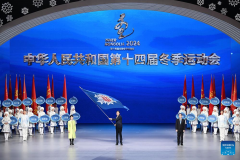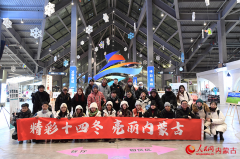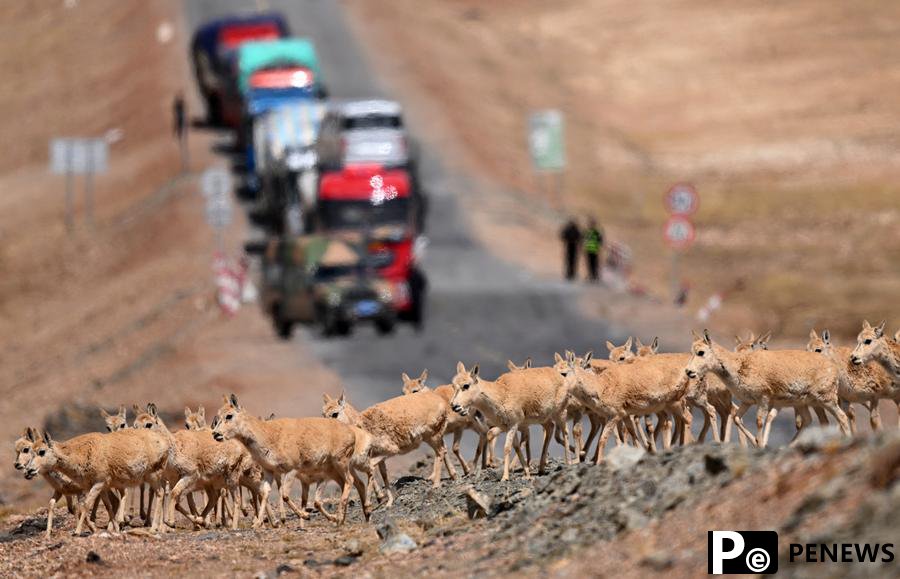Home>>
National Winter Games put incing on Olympic legacyBy Sun Xiaochen (China Daily) 08:03, February 28, 2024
Taking advantage of the Beijing 2022 Olympics' legacy, the 14th National Winter Games have delivered another huge boost to the popularity and status of winter sports in China.
With thrills and chills over 10 days, China's highest-level winter sports gala capped its largest-ever staging in Hulunbuir, Inner Mongolia autonomous region, on Tuesday to widespread acclaim.
For the first time in its history, the games, which were delayed due to the pandemic, saw a broad representation of the country's demographics. A record number of over 3,700 athletes from 35 delegations, including provinces from the warm southern regions, competed in Hulunbuir and the co-host cities. Since being launched in 1959, the games had only been a "regional "meet of city teams, mostly from the snowy northeastern provinces.
This year, there was also a record 176 medal events after China's sports governing body expanded the program. The expansion was in line with changes to the Olympic format to give Chinese athletes a head start in their preparations for the 2026 Milano Cortina Winter Olympics in Italy.
The larger-than-expected participation, coupled with impressive performances by young athletes whose talents were nurtured in emerging winter sports provinces, has borne witness to the progress of ice and snow sports in China.
The project to boost interest in winter sports was launched before Beijing 2022, with a boom triggered by the home Olympics. The domestic games offered yet another opportunity to keep the momentum going, especially with regional supporters who could cheer on their own athletes.
"Hosting the national games on a bigger scale and involving more athletes — despite being delayed from its original schedule — speaks volumes for the home Olympics' influence on the promotion of winter sports," Zhang Xin, director of athletic competitions at the General Administration of Sport of China, said on Sunday.
"The much-improved performances of athletes hailing from regions such as the central and southern provinces, where skating and skiing used to be only niche choices for sporting activities due to the climate limitations, was particularly encouraging.
"It proves that we are on the right track developing into a more balanced winter sports power and taking advantage of the legacy of Beijing 2022," he said.
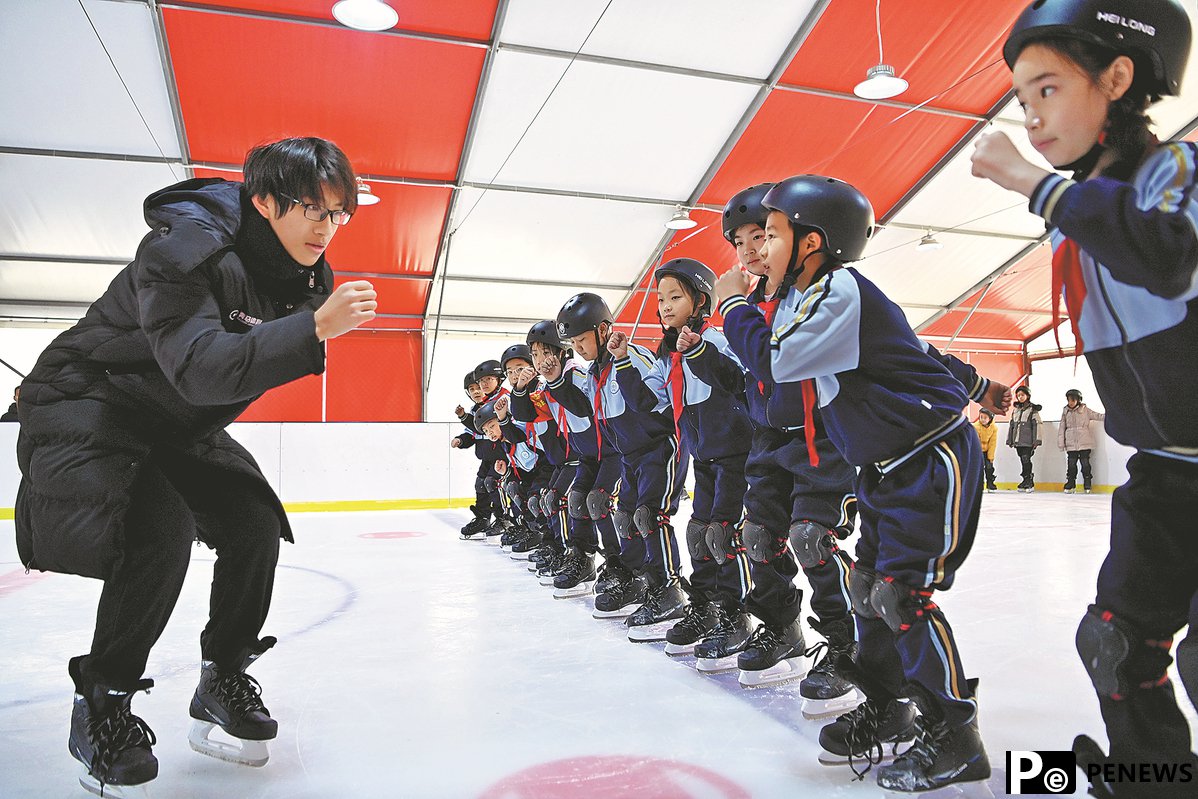
Students take skating lessons on an ice rink at a primary school in Tianjin on Jan 10. LI RAN/XINHUA
True national games
Thirty delegations out of 35 represented in Inner Mongolia won at least one medal, according to official results as of Sunday. The number is up from eight provinces and municipalities that had athletes finish on podiums at the previous national games in 2016.
A joint talent development program, which was designed to combine the financial strength of affluent southern provinces with the training expertise and resources in the country's north, was put in place for the national games and earned credit for leveling the playfield.
Under the program, an athlete was allowed to represent two delegations if coaching, financing and technical support were shared between provincial teams. Each medal won was counted for both delegations involved in the athlete's development.
"Sure, we'd like to encourage everyone to cultivate talent on their own, but the joint program works well for sparking greater interest in less-developed winter sports regions," Zhang said.
"The gap in winter sports knowhow and facilities between the northern and southern regions remains a challenge, but through this reform we are narrowing it to make the national games more competitive."
China's reigning Olympic champion snowboarder Su Yiming is an example of the success of the joint program. Su represented both Shanxi and Sichuan provinces at the games, winning a pair of gold medals in the Big Air and slopestyle competitions.
"It's been quite healthy competition for all the Chinese snowboarders to go all out against each other and motivate each other at the national games, which helps elevate the level of Chinese snowboarding as a whole," said Su, who became the first Chinese to win an Olympic snowboarding gold medal in the Big Air event at Beijing 2022.
The fact that Su was seriously challenged in Friday's final by runner-up Yang Wenlong from Anhui, an eastern province little known for its winter sports, shows that the gap between the best athletes and the chasing pack is closing fast.
"I am really excited to see so many young athletes express themselves and challenge their senior opponents at the national level. The future of Chinese snowboarding is in good hands," said Su, who turned 20 on Feb 18.
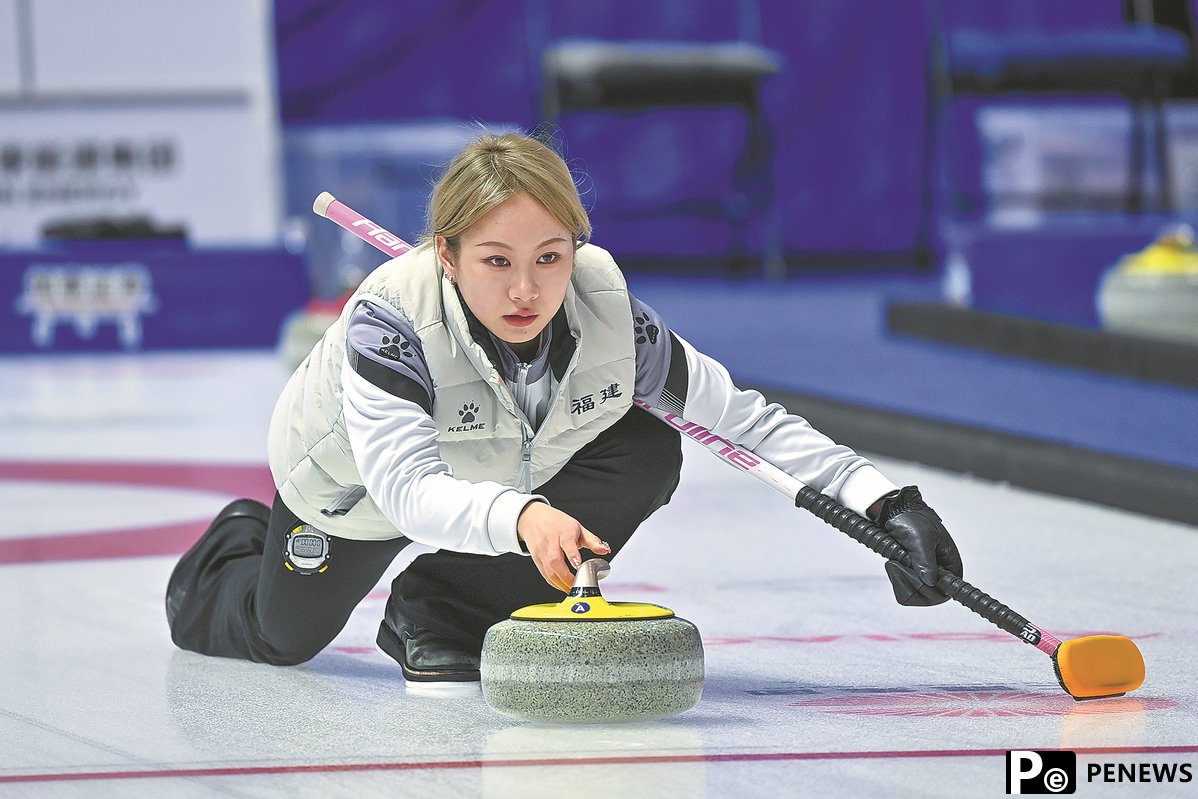
Curler Zhu Zeyangxu, who represented Fujian province, competes during the recent National Winter Games. YANG CHENGUANG/XINHUA
Green, sustainable
